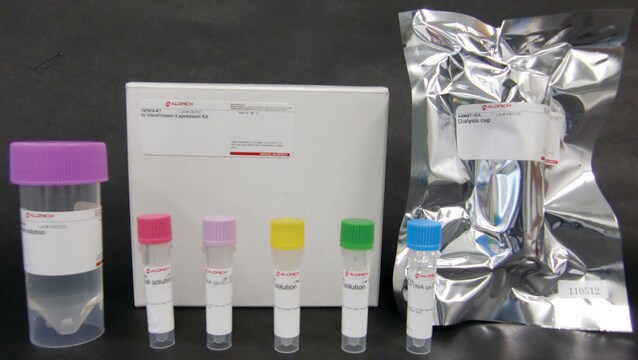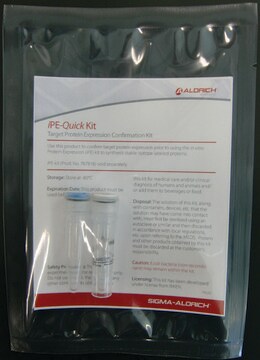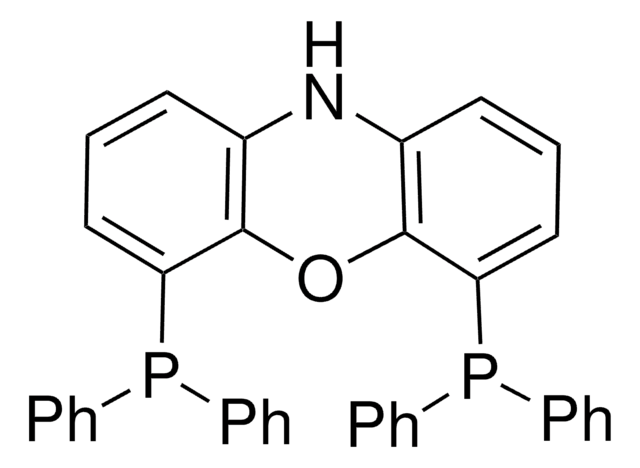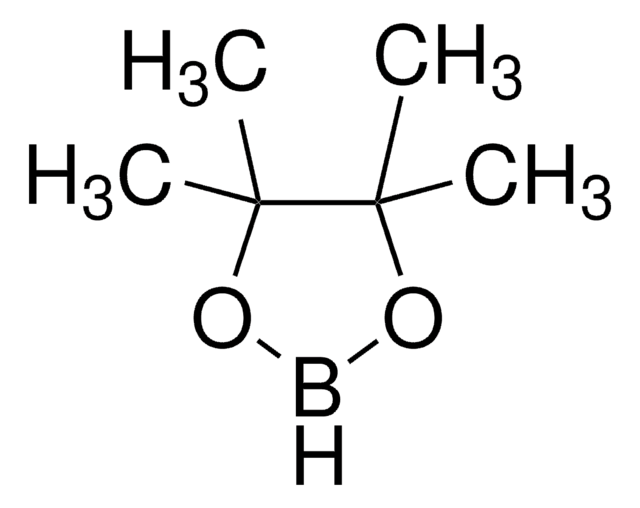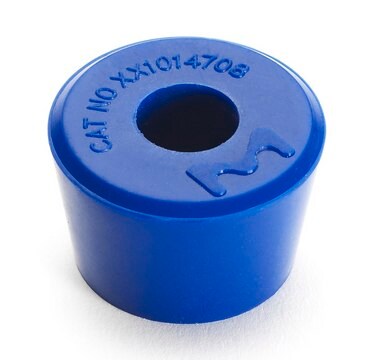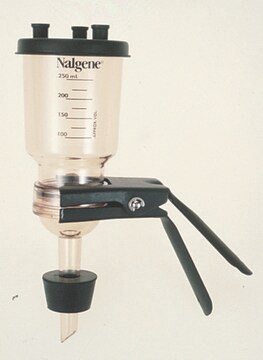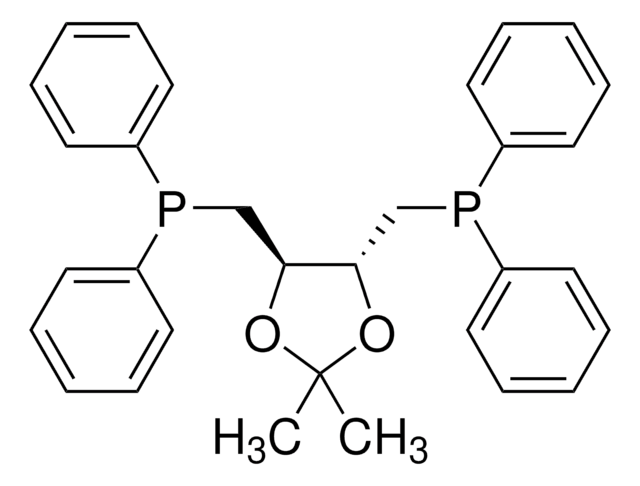905089
In Vitro Protein Expression (iPE) Kit II
Iniciar sesiónpara Ver la Fijación de precios por contrato y de la organización
About This Item
Código UNSPSC:
12352200
NACRES:
NA.12
Productos recomendados
técnicas
bio NMR: suitable
protein expression: suitable
Nivel de calidad
temp. de almacenamiento
−70°C
Categorías relacionadas
Aplicación
iPE-Quick Kit (prod.no. 767824) is available and intended for the confirmation of target protein expression utilizing E. Coli extract before the use of this iPE kit.
This is a protein synthesis system that utilizes E. coli cell extract. It allows easy and efficient protein expression by adding circular or linear DNA as the template DNA, which enables transcription of mRNA with T7 RNA polymerase.
This kit has been developed under license from RIKEN, incorporating their proprietary, advanced cell-free protein synthesizing technology into a kit dedicated to stable isotope labeling.
This kit is not intended to be used for disulfide-containing proteins. For disulfide-containing proteins, refer to prod.no. 797006.
Envase
For information on pricing and availability, please contact Stable Isotopes Customer Service.
Código de clase de almacenamiento
11 - Combustible Solids
Punto de inflamabilidad (°F)
Not applicable
Punto de inflamabilidad (°C)
Not applicable
Elija entre una de las versiones más recientes:
Certificados de análisis (COA)
Lot/Batch Number
¿No ve la versión correcta?
Si necesita una versión concreta, puede buscar un certificado específico por el número de lote.
¿Ya tiene este producto?
Encuentre la documentación para los productos que ha comprado recientemente en la Biblioteca de documentos.
Takayoshi Matsuda et al.
Journal of biomolecular NMR, 37(3), 225-229 (2007-01-24)
Cell-free protein synthesis is suitable for stable-isotope labeling of proteins for NMR analysis. The Escherichia coli cell-free system containing potassium acetate for efficient translation (KOAc system) is usually used for stable-isotope labeling, although it is less productive than other systems.
Takashi Yabuki et al.
Journal of structural and functional genomics, 8(4), 173-191 (2008-01-02)
A two-step PCR method has been developed for the robust, high-throughput production of linear templates ready for cell-free protein synthesis. The construct made from the cDNA expresses a target protein region with N- and/or C-terminal tags. The procedure consists only
Eiko Seki et al.
Analytical biochemistry, 377(2), 156-161 (2008-04-01)
Cell-free protein synthesis has become one of the standard methods for protein expression. One of the major advantages of this method is that PCR-amplified linear DNA fragments can be directly used as templates for protein synthesis. The productivity of cell-free
William C Yang et al.
Biotechnology progress, 28(2), 413-420 (2012-01-26)
Escherichia coli cell-free protein synthesis (CFPS) uses E. coli extracts to make active proteins in vitro. The basic CFPS reaction mixture is comprised of four main reagent components: (1) energy source and CFPS chemicals, (2) DNA encoding the protein of
Takanori Kigawa et al.
Journal of structural and functional genomics, 5(1-2), 63-68 (2004-07-21)
As structural genomics and proteomics research has become popular, the importance of cell-free protein synthesis systems has been realized for high-throughput expression. Our group has established a high-throughput pipeline for protein sample preparation for structural genomics and proteomics by using
Nuestro equipo de científicos tiene experiencia en todas las áreas de investigación: Ciencias de la vida, Ciencia de los materiales, Síntesis química, Cromatografía, Analítica y muchas otras.
Póngase en contacto con el Servicio técnico
